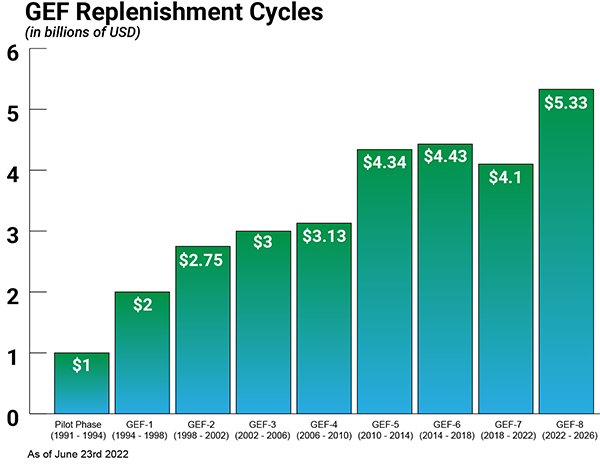GEF funding is provided by participating donor countries and made available to developing countries and countries with economies in transition to meet the objectives of international environmental conventions and agreements.
The Council-approved funds are transferred through 18 GEF Agencies to government agencies, civil society organizations, private sector companies, research institutions, among the broad diversity of potential partners, to execute projects and programs in recipient countries.
Contributions

Financial contributions by donor countries are provided via several trust funds administered by the World Bank acting as the GEF Trustee and serviced by a functionally independent Secretariat housed at the World Bank.
The Trustee helps mobilize GEF resources through a replenishment process every four years; transfers funds to GEF Agencies; and prepares financial reports on investments and use of resources. The Trustee provides periodic reports to the GEF Council that contain an array of fund-specific financial information.
- GEF Financial Reports (Summaries of financial information)
- GEF Independent Auditors’ Report and Financial Statements
- GEF Funding Availability
The GEF Secretariat has provided secretariat services for the Adaptation Fund since its inception; and the World Bank has served as Trustee.